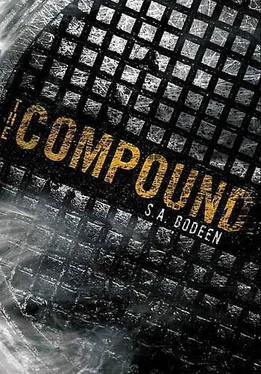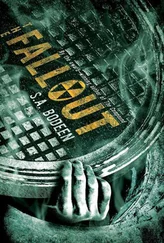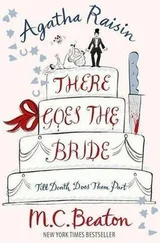She noticed the dread in my face and the smile on hers wavered. She backed off.
No one touched me. No one ever touched me. I didn’t allow them to. I didn’t touch them either. Not since the night we arrived here.
I sat down on a stool by the granite counter away from everyone else.
Dad yawned. His hair was a blond helmet of bed head, and he wore his ancient bear and elk shirt. Arms crossed, hands spread out on his shoulders, he looked like he was chilly. “Your fifteenth birthday, son.”
Not just my birthday. Eddy’s, too. That’s why I had been thinking of Eddy so much. My gut had realized it was our birthday even though my brain didn’t. I didn’t own a calendar. And I sure as hell didn’t mark off the days like some survivor on a desert island. I pretty much just waited for Mom and Dad to announce the holidays, the only Compound days that differed from regular ones.
Most holidays in the Compound were a welcome departure from the routine. Even though we lived in a microcosm where things never strayed from the unremarkable, holidays still held some surprises. The day after Thanksgiving we put up an artificial tree and decorations, hung stockings by the fireplace in the family room. On December 25, we awoke at some ungodly hour by Terese’s cheerful “Happy Christmas, everyone!”
Down in the family room, we found our bulging stockings. I admired Dad for managing to think of every detail. There was always something to open. Terese would get a doll or toy she didn’t already have. I’d get a video game. Lexie, some sheet music or ballet shoes. Although I knew where all the supplies were, Dad was able to keep a whole store of things secret, things he could bring out on birthdays and Christmas to make us feel like normal kids. And most of the time it worked. Even if it was just for one day.
My birthday wasn’t something I wanted to be reminded of, let alone celebrate. July 16. Once we were in the Compound, I found it ironic that Eddy and I were born on that day, the umpteenth anniversary of the inaugural nuclear explosion at the Trinity test site. Most dads had hobbies that they passed down to their sons; hunting, fishing, auto repair. Dad’s hobby was nuclear war, which meant his sons knew everything about it.
To Eddy and me, it was cool. War was exciting, especially nuclear war. But it was exciting in the same way a California earthquake might be exciting to a person from the Midwest, or a tornado might be exciting to someone who lives in New England, where they never occur. We thought it was something we would never experience, so we weren’t afraid.
Those scientists didn’t really know what they had created at first. Even their name for the atomic bomb was innocuous: the Gadget. But when they saw it brought to life, they realized soon enough. Oppenheimer himself later quoted some old text: “I am become death, the destroyer of worlds.”
Yeah, they realized soon enough. They probably realized weeks later on August 6, when the United States bombed Hiroshima, and then August 9, Nagasaki. The events of July 16 paled next to those.
July 16 wasn’t just my birthday. It was also the anniversary of the day we entered the Compound. That terrible night when, because of me, Eddy was gone forever. If it were up to me, I would never acknowledge the date. Celebrating the worst day of my life was insane. But I think celebrating the day only as my birthday—nothing else—helped the rest of the family in some way.
Mom handed me a package. “It’s from all of us.”
My fingers tore away the wrinkled white tissue paper. A first edition of On the Beach , a 1950s classic about the world after a nuclear war. It would have been valuable if the real world still existed. Of course I’d read it before; there was a paperback copy in the library.
I forced myself to look pleased as I opened the cover.
Dad had written the inscription, dated of course. Never without a black fine-point Sharpie, he always dated everything. In the old world, he dated boxes of cereal when the groceries were delivered. He dated packages that arrived in the mail. Whenever we went through the Starbucks drive-through to get his coffee, he’d date the paper cup. I wouldn’t be surprised if he’d Sharpied the date on my forehead when I was born.
I flipped the page.
Like the first time I’d seen them, T. S. Eliot’s cruel words struck me. That was the only passage I would ever read of this edition. Of course I would set it among the others on a shelf in my room, but it was a work I never wanted to read again. The survivors in the book stirred up jealousy in me. They saw the end creeping toward them, but all the while they were still in control of their own destiny. Yes, they were doomed, but they had the opportunity to choose when their final breaths occurred.
I envied them that, having cyanide as an option. Not that I would have chosen death over life in the Compound. But at least they had a tangible choice. I didn’t.
I felt Dad watching me so I forced a smile as I shut the book and thanked everyone. Then we had dinner, spinach salad alongside vegetarian lasagna with fresh peppers and tomatoes from hydroponics. The noodles were in pieces, they were so old, but it still tasted good. I didn’t look forward to birthday cake because there wouldn’t be any. We no longer had all the ingredients.
That had come to light a few weeks before. I had been in the kitchen, doing Mandarin vocabulary at the booth.
Mom was at the espresso machine, making her third Americano of the morning. For her, Dad had stockpiled what must have been tons of Tully’s whole bean French roast coffee. Decaf.
I was on my first, and only, of the day.
She took a sip out of her green-plaid insulated mug. “Eli, I want to show you something.” Still holding her cup of noncaffeine, Mom stood at the door to the pantry and beckoned. Inside, she pointed out a sack of flour. “Look in that.”
The burlap was folded open. The grayish flour stuck to my fingers. “I thought flour didn’t go bad.”
She took a drink. “I thought so, too. I’m wondering if it’s not entirely wheat. Maybe something else got mixed in.”
I held my hand to my nose and sniffed. Didn’t smell right. Didn’t smell that bad, though. “Is it all like this?”
“I don’t know.” She twisted a bit of her hair. “I don’t want you or the girls to eat any of it.”
I looked at her. “You’re not going to get rid of it?”
She bit the inside of her lip. “You know how your father likes bread.”
My eyes widened. “You’ve been feeding him bread from this?”
She nodded. “I mean, not yet. I just found this today. If he gets sick, then I’ll stop. I just… I just don’t want to give him any indication the food situation has worsened.”
That surprised me, coming from her. “Why not?”
She looked straight at me, almost like it was a challenge. “I just don’t. So I’m going to keep on like everything is fine. But I don’t want you or the girls to eat any bread I make.”
I knew she wouldn’t take the chance of using that flour to make cake, even for my birthday.
Back in my room, I treated myself to a Snickers from the stale stash under my bed. In honor of my Super-Duper Special Day. As I chewed, I couldn’t help but remember other birthdays. The ones in the Compound blended together, not worth reminiscing about.
But the ones on the outside? They were dream parties, fantasies befitting the twin sons of a billionaire.
Pony rides and moonwalks and huge theme cakes and, for our eighth birthday, a clown show plus players from the Seahawks. I thought we were too old for the clown. But that was the part of the party Dad let Mom plan, so Eddy persuaded me not to make a fuss.
That year should have been the best. Every boy from our class was invited, of course. But I knew they came for Eddy, not me. Eddy was kind to everyone, fun to be with, popular. I was just his twin; not so kind, not so fun. Definitely not popular. As Eddy’s twin, I was tolerated. We were a package—buy one, get one.
Читать дальше












